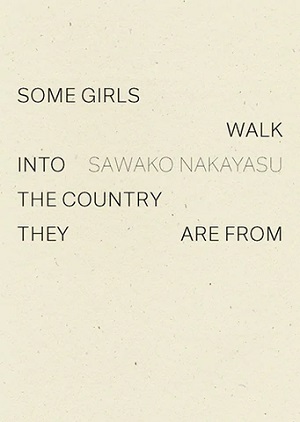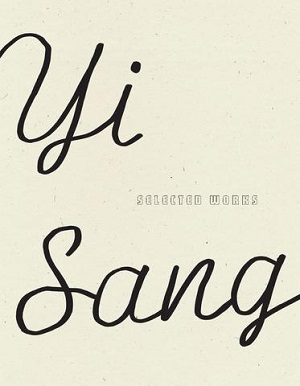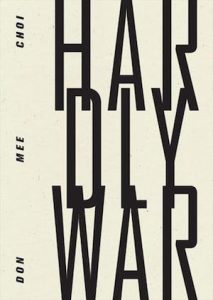
Collection by Sawako Nakayasu
Review by John Venegas
There are times where it feels strange that we consider “raising more questions than it answers” as a mark against something. Granted, that phrase is often meant to convey a lack of closure or satisfaction or evidence, but it is the phrasing that bothers me. Are we not supposed to ask questions? Are we not supposed to seek questions? Can’t a lack of questions come dangerously close to willful ignorance? I am aware that I am probably overcomplicating the idea (perish the thought), but I have been reading Some Girls Walk Into The Country They Are From, by Sawako Nakayasu, and I find myself awash in questions, immersed in questions, and I could not be happier as a result. This is the kind of poetry collection that engages on every level and radically reorganizes one’s thought processes. It is a book that I can only recommend to those who are interested in having their presumptions and perspectives interrogated, not by anything as unsubtle as direct question from the text, but by the readers themselves as they immerse in the text.
As good and conscientious visitors they dutifully abide by the laws of the new land. It would only be polite.
I admit with no shame that I still don’t entirely “get” this book. I am a straight, cis male who has lived in the same country his entire life, and this collection primarily engages with displacement and motion within themes of gender, sexuality, political and generational borders, and much more. On a very basic level, this collection contains lines and entire poems written in several different languages, some of which I cannot read and some which I am only partially familiar. But I suspect that is largely the point. First and foremost, as I have said before, literature in translation is an unmatched vehicle for bridging perspectives. Furthermore, the way the poems weave in and out of different languages and styles and identities beautifully reinforces the overarching themes. Even if you could read every character, the text does not permit you complacency. It will not allow you to pin it down beneath a few convenient categories. And it will cause you to look at everything else you have neatly collated and now take for granted and see your handiwork for what it is – insufficient.
She can hold her own in a hot dog eating contest. She has guts of steel, buns of steel, pink enamel nails of steel.
As a more concrete example of what I am talking about, the collection has a running motif (or perhaps reoccurring subject) of a group of girls, their identifications starting at Girl A and ending at Girl J. These girls seem to be in a state of constant flux. Everything from their ages to their clothing to their physical existence to their moods changes regularly. I’m not even sure they are separate entities during some of their appearances. Girl A seems to fantasize about a train sliding along her back. Girl J has sweet and innocent eyes and also manages to give “a swift kick under the table to her asshole editor”. Girl B is “on the brink of overcooking that idea out of the realm of tenability”. Girl F identifies her real name as “Fuck You For Asking”. The fluidity of meaning here is, I think, as its most direct. The motion of who they are, on individual and collective levels, is perpetual. It is a reflection of how many societies and cultures simultaneously attempt to isolate women from each other and other genders and attempt to herd them into vast pens of categorical subservience. It is a reflection of reactions to that external pressure, both in the fight for solidarity and the demand for recognition of the self. It is a reflection of the struggle between our need for understanding and our tendency to oversimplify. Are the Girls ten individuals, ten shifting perspectives within the same individual, or both? Is there a solid answer to that question, even at an entirely hypothetical moment in time?
Girls A through J cut their tongues on the distant approaching sunlight.
These questions are by no means limited to women, whether inside or outside the text. Cultural and ethnic minorities, immigrants, and people from across the spectrum of gender can attest to these experiences. They are questions that should be asked of themselves by everyone, especially instead of external questions like “Yeah, no, but where are you really from?” or “Are you sure you’re in the right bathroom?” or “You get that it’s just a joke, right?”. Where many texts invite you to engage with such ideas, Some Girls Walk Into The Country They Are From firmly points out that this process is already happening, with or without your participation or permission. It reminds you that you have a choice to make: do you have the humility for regular and meaningful introspection, or will you be eroded like the rest of the stagnant detritus as the perpetual movement flows around and over you?
Like this. Luminous continuity of seeing.
And for all this earnestly high-minded contemplation, the collection never fails to be entertaining. Whether decoding linguistic constraints or mulling over a sequence like “Out of a failure to materialize clothing mid-jump on my way to the tuba player,”, the text is just plain fun to read. It runs the gamut of emotions, almost as a byproduct of its refusal/inability to cease in its journey. If anything, it demands more of itself than it does of its reader, perhaps understanding that in order to do justice to the concepts it addresses, it must wield language with both utter precision and kaleidoscopic creativity. I wholeheartedly recommend Some Girls Walk Into The Country They Are From in the same way that I might recommend getting a friend who is willing to stimulate and challenge you.
Some Girls Walk Into The Country They Are From is available now through Wave Books.


 Hardly War by Don Mee Choi
Hardly War by Don Mee Choi